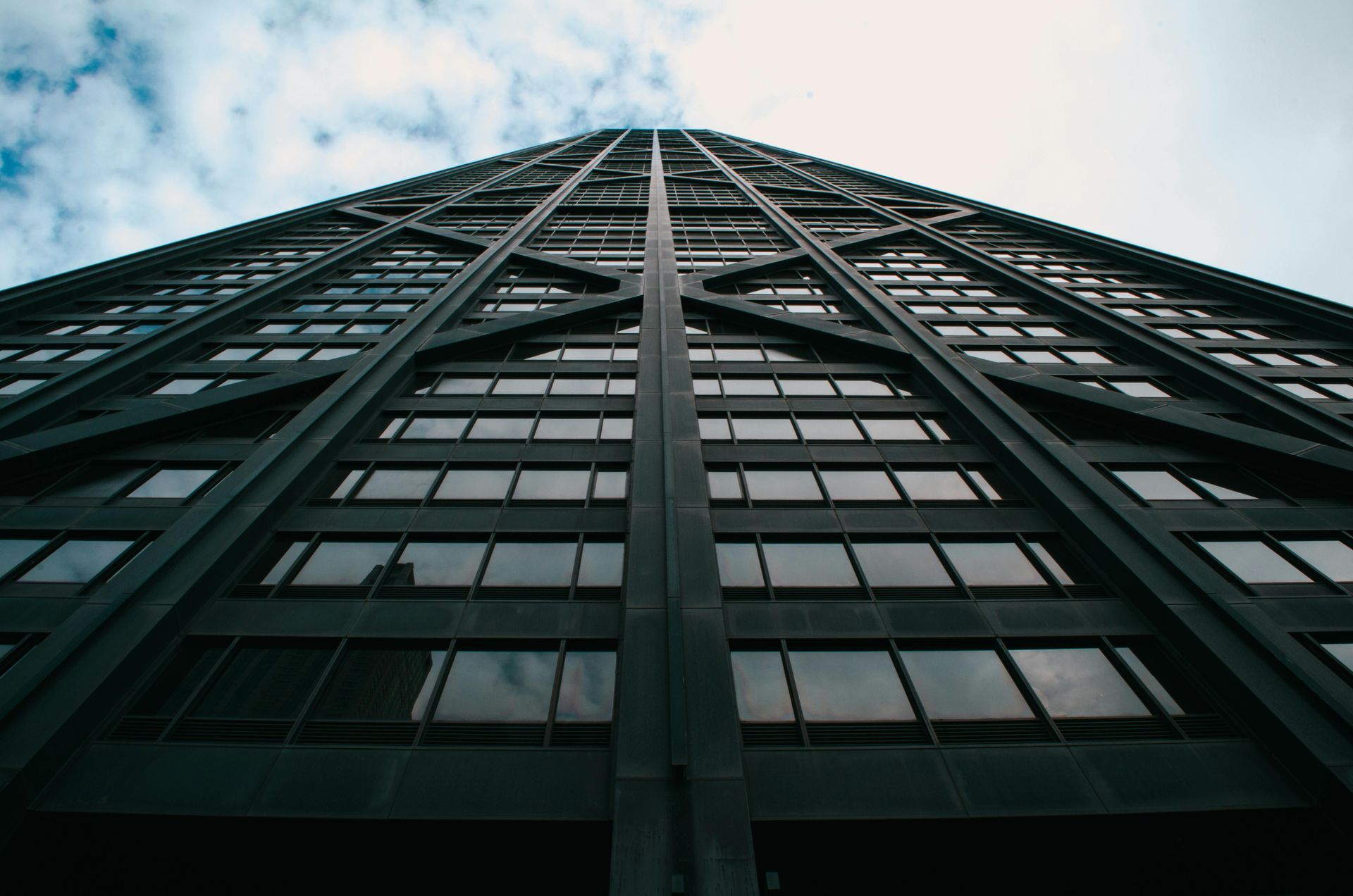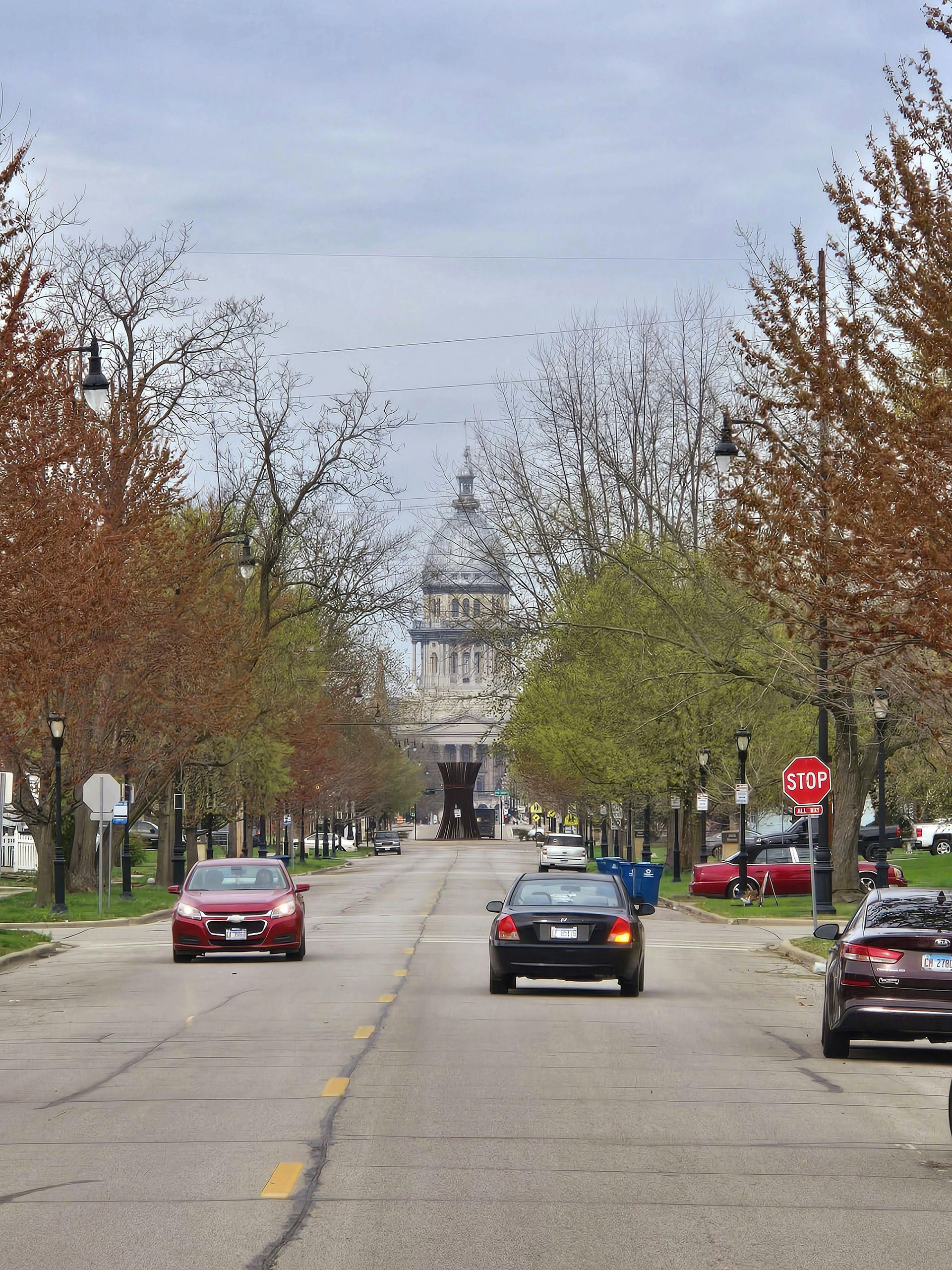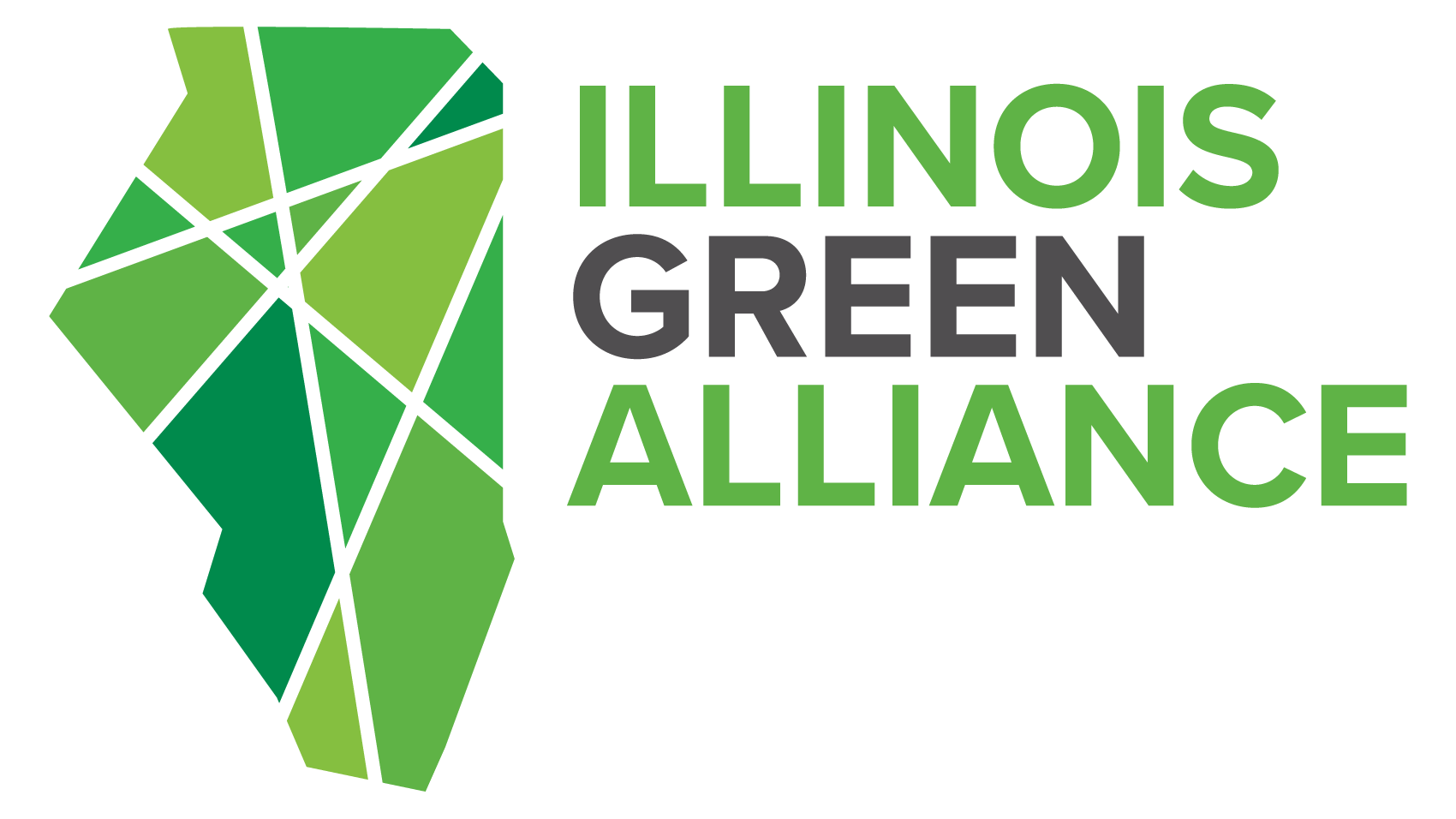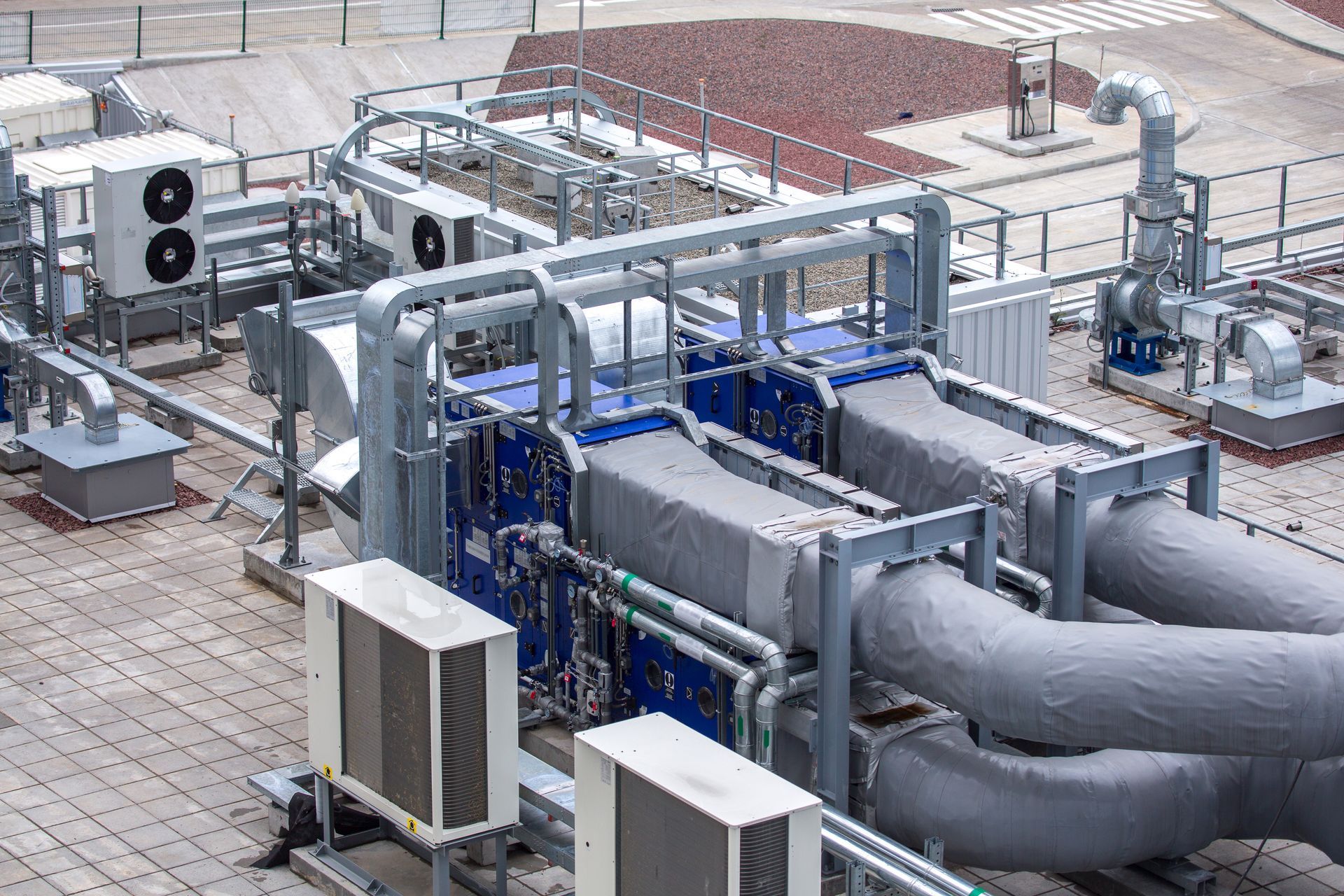Illinois Green Policy Update: April 2024
City Council Debates Clean and Affordable Buildings Ordinance
By Alejandra Rodriguez, Communications Intern
More than 100 clean building advocates showed up in support of the Clean and Affordable Buildings Ordinance (CABO) at an April 3 Chicago City Council hearing.
Many supporters of CABO told council members why they believe this ordinance is vital for protecting the city’s health, environment, and well-being, including Illinois Green Alliance’s Policy and Communications Associate, Ryan Wilmington.
“It is clear that the demand is there, the technology is feasible, and these buildings are affordable. Chicago needs to take inspiration from cutting edge market leaders, and not those who want to stick residents with ineffective, outdated technology that makes our residents unhealthy and drains their pockets,” Wilmington said.
CABO was presented at the hearing by Chief Sustainability Officer Angela Tovar, Buildings Department Managing Deputy Commissioner Grant Ulrich, and other city officials. They explained that meeting Chicago’s goal of 100% clean energy by 2050 is pressing, as the last decade has been the hottest on record.
The team faced criticism from Alderwoman Silvana Tabares, who echoed union concerns about job loss. Tovar countered that CABO presents pathways to jobs for women and people of color.
Later in the hearing, Council members questioned ComEd representatives Scott Vogt, Vice President of Strategy and Energy Policy, and Jim Ortega, Director of Grid Analytics, on grid reliability. The alders' main concern was on whether existing infrastructure had the power to sustain electrification through their existing grids. Vogt and Ortega claimed that their grids are built for the summer, when peak energy usage with heavy air conditioning demand occurs.
Less energy generation is needed now in comparison to peak heat in 2011 because of efficiency measures implemented over the last 15 years. They claimed that there is no doubt they can meet increased electricity demand from CABO.
AJ Patton, Sandra Henry, and Sarah Moskowitz then presented their support for CABO, providing perspectives from developers, nonprofits, and utility watchdogs.
Patton is the founder of 548 Development, an energy efficient and solar powered affordable housing company in Chicago.
His testimony centered around the positive market conditions for electric buildings, which are cheaper to build and maintain, as they have lower energy bills than fossil fuel buildings because of the efficiency of heat pumps.
“Our tenants have now received over a one-third reduction in their utility expenses, and I have delivered over double-digit returns to my investors. Just to state for the record, I am a for profit,” Patton said.
Afterwards, representatives of People's Gas voiced their opposition to CABO. Although they offered cleaner alternatives of hydrogen and renewable natural gas from a food decomposition project, these technologies have not been tested. Additionally, these sources will be incompatible with their framework until they complete their infrastructure replacement program, which is already behind schedule and over budget.
When questioned about implementing these sources, People’s Gas failed to find answers for their timelines of execution or how energy demands could be met with these sources.
Though no immediate movement has been made in going forward with CABO, advocates continue to push their support, and the campaign towards clean energy is ongoing.
Regulators to Decide 'Future of Gas'
How can the gas system be decarbonized? Is renewable gas or hydrogen a viable alternative? What should be done about stranded assets? How can we prevent low-income ratepayers from being left behind in the energy transition?
The Illinois Commerce Commission (ICC) has brought together utilities, consumer advocates, environmentalists, and unions to answer these pressing questions about the state’s energy systems.
With the Climate and Equitable Jobs Act putting Illinois on the path towards 100% carbon free power by 2050, the state's sustainability efforts have shifted focus to decarbonizing buildings, while also balancing the impact on infrastructure, jobs, and equity. With these key challenges in mind, state officials are working to inform policymakers on how to handle the transition through a series of collaborative workshops.
“We need to get this right. We get one really good shot at this,” ICC Chair Doug Scott said at the opening ‘Future of Gas’ hearing, highlight the importance of the decisions to be made about gas in the coming year.
These Future of Gas’ hearings were initiated after the ICC balked at the People’s Gas proposal for a record rate increase, slashing their request by 25%, halting their pipe replacement program, and requiring the utility to better support struggling ratepayers.
The Future of Gas proceedings will give all stakeholders in the industry a seat at the table—presenting an opportunity for sustainability and building professionals to make their voices heard. The next hearing will be held virtually on Monday, April 29th at 6 PM and will be focused on gathering input from community members on what they want to see in the coming energy transition.
More Green Building Highlights
- The International Code Council votes to weaken 2024 Model Code, going against expert recommendations. The new code is still expected to increase energy efficiency in residential buildings by 6.5% and commercial buildings by 10%, according to the Pacific Northwest National Laboratory, but the Council went against their own rules to side with special interests and remove requirements for buildings to pre-install the infrastructure for solar, electric vehicle charging, and electric appliances. This decision will make decarbonizing buildings in the future more costly and labor intensive.
However, with the 2024 IECC challenges settled, one of the final road blocks for the Illinois Stretch Code development process has been settled. Earlier this month, the Capital Development Board voted to approve the Strech Codes without any major weakening changes. Now, the final step before the codes are ready for municipal adoption is approval from the Illinois Legislature Joint Committee on Administrative Rules. - Chicago releases draft Sustainable Development Policy Update. This policy would require specific projects in the city, such as ones receiving public funding, to meet new sustainability requirements. Now, the Department of Planning and Development has opened up a feedback period. Illinois Green members are highly encouraged to share their thoughts by the May 15th deadline.
- The Illinois Climate Bank is set to receive hundreds of millions for green financing. The Climate Bank, a project under the Illinois Finance Authority, has been named as a recipient of two Federal EPA Grants. First, the Climate Bank was a joint recipient of a $5 billion EPA Greenhouse Gas Reduction Fund grant through a multi-organization partnership with the Coalition for Green Capital. While the Climate Bank’s exact share has not been announced, the funds will be spent on accelerating the investment of private capital on green energy projects in an equitable manner. Later in the month, it was announced that the Climate Bank will be receiving $156 million for the Solar for All program.
- Skokie aims to address one of the most challenging issues in green building policy – making decarbonization accessible for renters. The village has partnered with the American Council for an Energy Efficient Economy to help develop a program to maintain affordable, energy efficient housing for renters. They will engage relevant stakeholders to develop an incentive program for low- to moderate- income households to implement decarbonization and energy efficiency strategies. Read more here.
- Marlene Hopkins confirmed as Chicago’s Commissioner of Buildings. She has been with the Department of Buildings for 18 years, most recently serving as First Deputy Commissioner. Find the city's press release here.
In Other Sustainability News
- Block Club Chicago: Mayor Plans To Boost Housing, Business Development By Cutting Red Tape
- ABC7 Chicago: Mayor Brandon Johnson moving forward with plan to convert downtown offices to housing
- Bloomberg: Biden Rolls Out New Minimum Energy Standards for Affordable Housing
- The New Republic: House Republicans Ridiculed into Dropping “Appliance Week”




